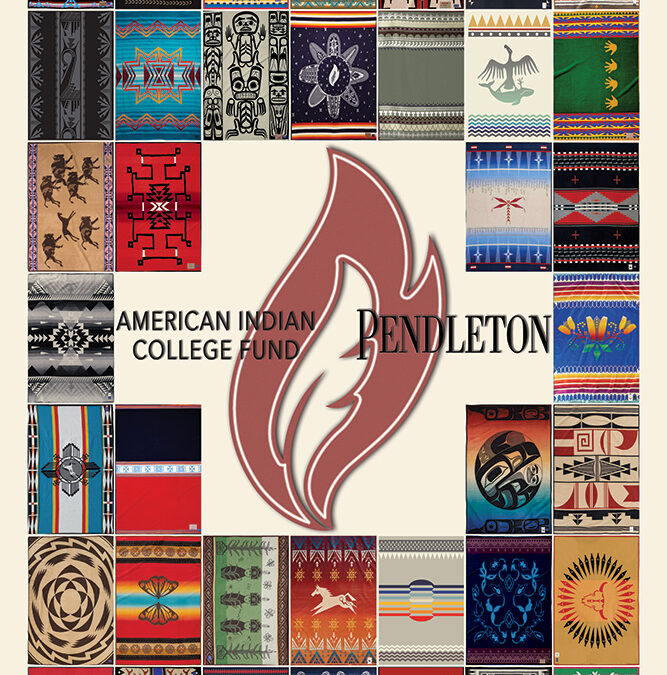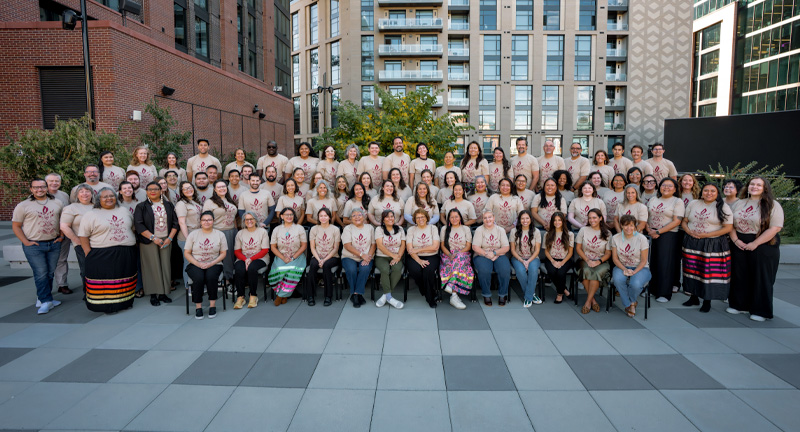American Indian College Fund Receives Unrestricted Gift from MacKenzie Scott Foundation
Denver-based Non-profit Supports Indigenous Student Access to Education and Academic and Career Success
Denver, Colo.—The American Indian College Fund, the national non-profit organization serving American Indian and Alaska Native college students and tribal colleges and universities, learned the MacKenzie Scott Foundation, headed by the billionaire novelist and philanthropist of the same name and her husband Dan Jewett, selected it to receive an unrestricted gift. The College Fund provides Native American and Alaska Native students with greater access to a higher education and the support to succeed in college and in their careers.
The gift could not have come at a better time. The national college attainment gap of Native Americans is already less than half of that of other groups at 15% (compared to 32.1% of all other groups), according to the U.S. Census Bureau.
When the pandemic hit, it heightened existing barriers for Indigenous people to access education. Native communities were hit hardest by the virus due to limited access to health care or inadequate health care services; community members with more existing chronic health conditions; and much higher rates of poverty that result in greater rates of food and housing insecurity among Native students, according to the Tribal Colleges and Universities #RealCollege Survey and subsequent College Fund student surveys. When lockdowns shuttered Tribal nations, many colleges and universities transitioned to online classes, leaving many students in remote, rural reservation communities cut off due to lack of affordable technology resources and connectivity. And after Tribal economies based largely in the service industry closed leading to high rates of unemployment, it left many of the more than 50% of College Fund scholars who work full- or part-time and who are the sole family breadwinners without jobs.
Any one situation taken alone would be stark, but taken together, they resulted in the steepest national pandemic-related declines in college enrollment among first-time entering Native students in the fall of 2020, according to American Indian Higher Education Consortium data. Freshman enrollment was down 11% overall at TCUs and down 23% nationally at all colleges and universities.
Cheryl Crazy Bull, President and CEO of the American Indian College Fund said, “This gift is timely and pivotal because, in combination with the generosity of our network of current and future supporters, we now have the capacity to grow greater opportunities for American Indian and Alaska Native communities and to create lasting change. MacKenzie Scott and Dan Jewett’s acknowledgement of our work is a testament to the important role of education to transform the lives of our students, their families, and communities.”
The College Fund is committed to eliminating the college attainment gap among Indigenous people and ensuring that every American Indian and Alaska Native student that dreams of a higher education can achieve that dream. The College Fund continues to appreciate and rely upon the support of every one of its current and future supporters to meet its goals to transform the lives of Indigenous students, their families, and their communities through a higher education.
About the American Indian College Fund: The American Indian College Fund has been the nation’s largest charity supporting Native higher education for 31 years. The College Fund believes “Education is the answer” and provided $9.25 million in scholarships to American Indian students in 2019-20, with scholarships, program, and community support totaling over $237 million since its inception. The College Fund also supports a variety of academic and support programs at the nation’s 35 accredited tribal colleges and universities, which are located on or near Indian reservations, ensuring students have the tools to graduate and succeed in their careers. Among Native students that graduate from tribal college graduates, a 2019 Gallup survey shows 74% work in careers in their communities in fields such as health care, education, business, and more. The College Fund consistently receives top ratings from independent charity evaluators and is one of the nation’s top 100 charities named to the Better Business Bureau’s Wise Giving Alliance. For more information about the American Indian College Fund, please visit www.collegefund.org.
Journalists: The American Indian College Fund does not use the acronym AICF. On second reference, please use the College Fund.









